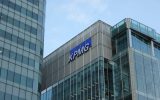It is currently ₦50,000, but the Chairman of Air Peace, Allen Onyema, has said, during a public hearing by the House of Representatives ad hoc committee investigating the scarcity of aviation fuel in Abuja, that the least one-way ticket might cost up to ₦120,000 for an economy seat.
According to Onyema, airline operators have agreed to experiment with the price for three days while negotiations between stakeholders last.
He also said they would have loved to have the price of aviation fuel as low as ₦200 per litre, but they would keep to the agreement on the tentative price, adding that the cost of airline tickets would still be on the high side until the issue is resolved.
From what is happening, sir, if it continues this way, the least ticket will be about ₦120,000 for the economy seats and we don’t want to do that. We want to inform the House that we are demanding that we should be given licences to import this fuel. If we can buy jets that cost hundreds of billions of dollars, we can afford to import this fuel.
Allen Onyema
Back story
The economy class fares hovered between ₦23,300 and ₦48,000, although rates rose to as much as ₦70,000 during the last festive season.
By mid-February, the prices of air tickets of major companies such as Air Peace, Ibom Air, Max Air, Aero Contractors, Dana, Azman air among others, rose to a minimum of ₦50,000. Passengers were not going to receive discounts even if they book weeks ahead as it used to happen.
The minimum ticket price for even a three-week booking on Air Peace, Ibom air, Max Air, Azman air and others has been pegged at ₦50,000 flat rate, about 115 per cent increase from ₦23,300 minimum rate.
As at press time, the prices differ depending on day of booking. A booking a day after, from Lagos to Kano, on Air Peace stands ₦55,500, two days after stands at ₦70,000. It only becomes ₦50,000 if it is booked four days after. On Max Air, all days stay at ₦50,000.
Previously, Airline Operators of Nigeria, in a statement, condemned attacks on airline staff and facilities by passengers at the various airports over flight delays or cancellations.
The association also complained of the high cost of jet fuel, foreign exchange scarcity, inflation, increase in ground handling charges as well as the cost of buying and importation of spare parts.
They said aviation fuel rise from ₦190 per litre to ₦410 in Lagos, ₦422 in Abuja and Port Harcourt, and ₦429 in Kano.
Speaking with aviation correspondents, Obiora Okonkwo, chairman of United Nigeria Airlines (UNA), had said the sudden rise in the price of Jet A1 was hurting the operations of airlines.
“The least ticket we sold a year ago was ₦23,000 when aviation fuel was ₦190 and the official rate of naira to a dollar then was ₦340, but today, if forex is available, it is ₦450, but when it is not available, the alternative market is ₦570 to a dollar,” he had said.
An alliance to help?
Air Peace, Azman Air, Arik Air, Aero Contractors, United Nigeria and Max Air recently formed an alliance christened Spring Alliance. The intention, according to the airlines, is to ” help each others’ operations”.
The alliance aims to improve service delivery and reduce operation-induced flight delays.
Allen Onyema, said the Spring Alliance is for the benefit of the passengers.
“In the aviation world, we have so many alliances that airlines key into. We have the Star Alliance; there is One World and several others. And airlines decide to key into those alliances for the benefit of both the passengers and the airlines themselves.”
The Chief Executive Officer of United Nigeria Airline, Dr. Obiora Okonkwo, said the alliance would revolutionise flight services for the Nigerian flying public, as passenger satisfaction is the major objective.
Okonkwo said, “There’s no doubt that Nigerian airlines are going through some situations and part of the way to react to this is to have the passengers in mind. It is simply thinking out-of-the-box. We are not reinventing the wheel, we are just adopting what we have seen that has worked in other places, and it will surely work in Nigeria so that the passengers going to the airport are more guaranteed that they will fly.”
The current situation
The Aviation Operators of Nigeria (AON) warned a few days ago that the safety of flights in Nigeria may be in danger because of the persistent hike in the price of aviation fuel.
The operators disclosed this in Abuja on Thursday, March 10, at the public hearing organised by the House of Representatives ad hoc committee investigating the scarcity of aviation of fuel.
They also said they are struggling to maintain their aircraft as fuel now takes over 115 per cent of operation costs.
On Wednesday, March 9, the Chairman of the House Committee on Aviation, Nnoli Nnaji, had moved a motion calling for an investigation into the scarcity of aviation fuel.
Following the adoption of that motion, the House had mandated the chairman alongside those of Petroleum Downstream and Petroleum Upstream to meet with the GMD of NNPC Limited, Airline Operators, Jet A1 marketers and others.
Onyema, who is the vice president of AON, said the price of aviation fuel moved from ₦190 per litre to ₦670 per litre within two weeks.
Onyema said the operators would have shut down operations if not for the political season and to support the current administration that has been supportive of the sector.
He stated that the operators cannot survive the next 72 hours because they are indebted and risk takeover by the Asset Management Corporation of Nigeria (AMCON).
Onyema, while reacting to the claim by Ugbugo Ukoha, the executive director for Distribution System for Storage and Retailing Infrastructure in the Nigeria Midstream and Downstream Regulatory Authority, who had claimed that Nigeria has an excess supply of Aviation Turbine Kerosene (ATK), said the regulatory authority is not sincere on the state of things in the sector.
Ukoha had said the country had 34 days of fuel supply, hence, the report of scarcity is false.
“ATK is a deregulated product, however, we licence every importer. In our schedule, we have licenced about 28 marketers who are licensed to bring in ATK in the last three months.
“From our records, we have sufficiency—because we also monitor the vessels as they come in to discharge. As of today, we have 34 days of sufficiency for ATK. All we can say is that there is enough volume to go round, I will be interested in knowing about this scarcity. With deregulation, the market forces are at play.”
Onyema, while responding to the presentation by Ukoha, said the claim that fuel was in abundance was not true, noting that operators have to source the fuel from any marketers at an exorbitant price.
“The product is not available, I am surprised that he (Ukoha) is saying there is sufficiency that will last for 34 days, Nigerians know that this thing is scarce. The flight cancellations are unimaginable. We fly 2 am, 3 am whenever we get the fuel,” Onyema said.
NCAA reacts
The Director-General of the Nigerian Civil Aviation Authority, Musa Nuhu, said the hike in the cost of jet fuel is making the NCAA consider grounding some airlines from operating to avoid air mishaps.
“In the past couple of weeks, we have seen significant rise in the price of aviation fuel, one year ago, it was selling at ₦170 per litre, as at this afternoon, it is going for ₦670. What this has done, it has increased the cost of operations of airline operators. Fuel used to be about 30 per cent of aviation cost, now, it has gone to 50 per cent of the cost.
“This is a significant safety concern, because if airline cannot have significant financial margin to comply with all the mandatory requirements. God forbid, I don’t want to come before this committee to explain why A or B happened.
“It is either we shut them down because they cannot generate enough revenue to operate safely.”
NNPC speaks
Mele Kyari, the GMD of NNPC Limited, said, “The Chairman of Air Peace Airline said we should bring it to ₦200 per litre, it is impossible. As of today, the landing cost of ATK is ₦418 per litre, we have no control over that, the only way is to subsidise it.”
Instead, he advised that “the operators should have the right commercial arrangement with their suppliers,” he said, adding “you must take long time position, you must take long time position and edge your position. If you take a long position, you can actually guarantee stability in prices.”















